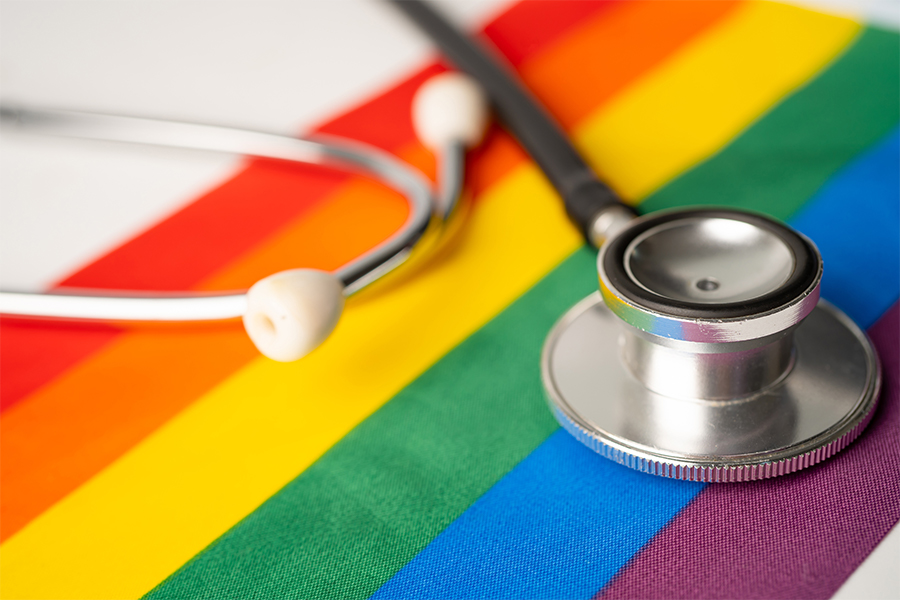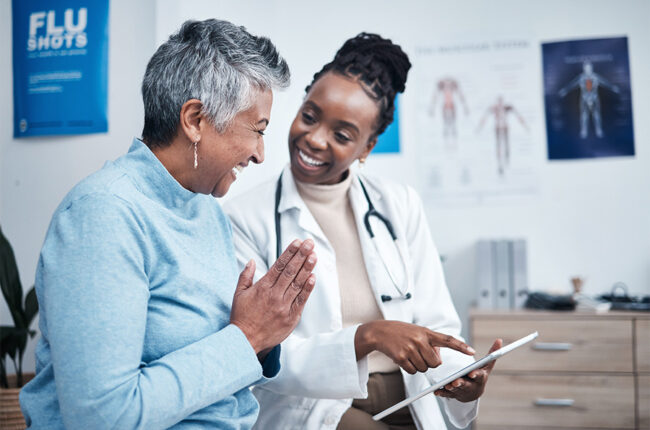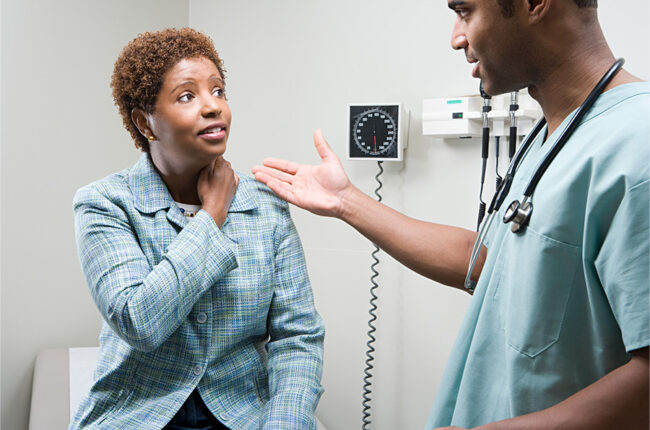What screening tests you take depend on what body parts you have, your personal and family history, your age, and your sexual activity. Screening for certain cancers may depend if you take hormones. Talk to your doctor about what screenings you need.
Experts recommend cervical cancer screenings for anyone ages 21 to 65 who has a cervix. This may mean having a Pap test or a human papillomavirus (HPV) test, or both. How often you need these tests will depend on your age and health history. HPV can be passed among partners of any gender. And HPV increases your risk of getting cervical cancer.
Sexually transmitted infections (STIs) are a concern for everyone who is sexually active. If you give your doctor a full picture of your past and present sexual practices, it can help you know which STIs you might need to be tested for and when. You may also discuss options for safer sex.
Depression is more common in the LGBTQ+ community. So it’s a good idea to check in with your doctor if you’re feeling down. Treatment for depression can help people feel better each day. And it can help people take better care of themselves so that they lead the healthiest lives possible.
Your doctor can help you figure out what other screenings you may need. These may include screenings for cholesterol, diabetes, or certain cancers, like breast, prostate, and colorectal cancer.
Along with getting screenings, you and your doctor can also discuss ways to do more of the things that help keep you healthy in general. These include things like being active, eating healthy foods, and spending time with others.
Human Immunodeficiency Virus (HIV):
Human immunodeficiency virus, or HIV, is a virus that attacks your immune system. This makes it hard for your body to fight infection and disease. HIV is the virus that causes AIDS (acquired immunodeficiency syndrome). But having HIV does not mean that you have AIDS. Treatment of HIV may prevent or delay HIV from developing into AIDS.
HIV often causes flu-like symptoms soon after a person gets infected. These early symptoms go away in a few weeks. After that, you may not have signs of illness for many years. But as the virus multiplies in your body, symptoms reappear and then remain. Fatigue, weight loss, fever, night sweats, diarrhea, and other symptoms are common. If HIV is not treated and progresses to AIDS, your symptoms get worse and your body is less and less able to fight infections like pneumonia and tuberculosis.
You can get HIV testing done in most doctors’ offices, public health clinics, hospitals, and Planned Parenthood clinics. You can also buy a home HIV test kit in a drugstore or by mail order. If a home test is positive, you’ll need to see a doctor.
What increases your risk of HIV?
You’re at greater risk of getting infected with HIV if you:
- Have unprotected vaginal, anal, or oral sex. (You don’t use condoms or don’t use them correctly).
- Are a man who has sex with other men. (If you or your partner[s] don’t identify with the sex you were assigned at birth, talk to your doctor about your risk.)
- Have more than one sex partner.
- Have a high-risk partner. This is someone who has more than one sex partner, has HIV or another sexually transmitted infection (STI), or injects drugs.
- Have (or recently had) an STI, such as syphilis or active herpes.
- Inject drugs or steroids. This is especially true if you share needles, syringes, or other equipment used to inject drugs.
Being born to a mother who has HIV increases the risk of infection. Most children younger than 13 years who have HIV were infected before or during birth or during breastfeeding.
LGBTQ+ Health: Finding Support
Having a strong support network can help people live longer, more satisfying lives. Connecting with other LGBTQ+ people can provide a level of support and acceptance that can make you feel more connected and empowered.
Here are some ways you might find support.
- Try sports or activity clubs organized for LGBTQ+ people.
- Join a support group.
- Visit places of worship that are LGBTQ+ friendly.
- Find groups specific to LGBTQ+ people for quitting smoking, alcohol, or drugs.
- Get professional counseling.
- The websites www.samhsa.gov and www.glma.org can be great resources to find mental health services.
- If you’re being emotionally, verbally, or physically abused, you can also call the National Domestic Violence Hotline at www.ndvh.org or 1-800-799-SAFE (1-800-799-7233). It’s a free hotline that’s available 24 hours every day in English and other languages.
If you’re not sure about reaching out in one of these ways, remember that lots of people have felt the same way. Sometimes, taking the first step is the hardest part.
Check out the VEBA Resource Center Community Resource Page for more local and national resources.









